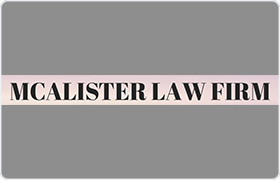Perkinston Divorce & Family Law Lawyer, Mississippi
Sponsored Law Firm
-
 x
x

Click For More Info:
-
McAlister Law Firm, LLC
419 Security Square Gulfport, MS 39507» view mapDivorce & Family Law Your Gulf Coast Attorney
An Attorney with Nineteen years of court room experience. Licensed in the States of Mississippi and Alabama.
228-265-5190
W. Fred Hornsby
✓ VERIFIEDCriminal, Divorce & Family Law, Immigration, Estate, Accident & Injury
W. F. "Dub" Hornsby, III, is a lifetime resident of Biloxi. A graduate of Mercy Cross High School, Mississippi State University and the University of ... (more)
Rita Nahlik Silin
✓ VERIFIEDDivorce & Family Law, Child Custody, Bankruptcy, Adoption, Paternity
At Silin Law Firm PLLC in Ocean Springs, you will find an attorney with a thorough knowledge of the laws and the courts, along with empathy and honest... (more)
John Paul Barber
Family Law, Franchising, Banking & Finance, Wills & Probate
Status: In Good Standing
FREE CONSULTATION
CONTACTRebecca Cartledge Taylor
Accident & Injury, Divorce & Family Law, Estate
Status: In Good Standing Licensed: 42 Years
Thomas M Matthews
Landlord-Tenant, Lawsuit, Social Security, Child Custody
Status: In Good Standing Licensed: 51 Years
Casey Ryan Varnado
Child Custody, Divorce & Family Law, Criminal, Medical Malpractice
Status: In Good Standing Licensed: 23 Years
 Carolyn McAlister Gulfport, MS
Carolyn McAlister Gulfport, MS


